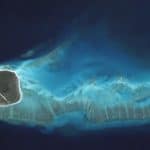Every ride is a new experience
In many countries, it is advisable to take a cab to the hotel after landing at the airport, for example. In many places on earth it is also possible to get from A to B by bus and thus plan your individual trip in different stages. Getting around in Madagascar by motorized vehicles is not always easy and those who do not know how to get around can easily get into an accident. Caution is an important factor and for this very reason, all the important information concerning motorized cabs and "public" transportation illustrated. One Rental car on Madagascar can be an alternative option for you, but on our tours we usually rely on experienced drivers and a four-wheel drive vehicle. So, for example, if you want to take a 19 days individual trip from Antananarivo to Tulear book with us, you do not have to worry about motorized cabs and co. The travel package includes a driver, the fuel and the four-wheel drive vehicle.
Motorized cabs in Madagascar
If you want to use your Madagascar vacation and plan to use motorized cabs as a means of transportation during this vacation, we can only advise you against it without the appropriate spirit of adventure. The motorized vehicles in Madagascar have very little to do with the cabs known in this country. In Antananarivo, the public cabs are usually beige and present themselves mostly as Renault R4 or R5 or as Citroën 2CV - or as that, what is left of these cars. With regard to cars, Madagascar has a rather special policy, because a car is anything that runs, with superfluous bells and whistles being dismantled quite quickly. Anything that cannot be repaired is not needed on a vehicle. In return, drivers often have to get a little creative, but that doesn't bother anyone in Madagascar. Not even the classic gasoline tanks are left with the vehicles. Instead, they usually fill up in a small bottle, which is then stowed under the driver's seat and coupled to a hose that leads directly under the hood. Accordingly, the first stop a cab with passengers makes is often the nearest gas station to fill up with half a liter or a liter of gasoline - depending on how much fits in the bottle. Accordingly, passengers traveling in motorized cabs do not only have to spend a lot of Daring and willingness to take risks It is not uncommon for the cabs to give up the ghost during the journey and then have to be pushed along with all their might. By the way, there is of course no meter in the cab - price agreements are usually made before the start of the journey. But if you think that there are no rules for cabs in Madagascar, you are wrong: Every four months, the cabs have to be inspected. to the local TÜV and are inspected there. What exactly is checked there, however, probably does not even remotely correspond to what is relevant in a German general inspection.
Cab Be and Taxi Brousse in Madagascar
Classical buses and other means of public transport, which run regularly and reliably as is usual in Europe, do not exist in Madagascar. Although there are the so-called Cab Bethat serve fixed routes in cities like Antananarivo, but when exactly the Taxi Be pass their stations, no one can really know. Literally translated, Taxi Be means as much as Big cab and that's exactly what these vehicles are. First and foremost, they are Mercedes minibuses that drive through Madagascar's cities as Taxi Be and thereby always as many people as possible collect. The buses have different colors that correspond to the respective lines. Finally, many people in Madagascar cannot read or write. The cab be are one of the main reasons for the numerous traffic jams in Madagascar's capital - Finally, there are no traffic lights and no real traffic rules, so the drivers of the Taxi Be can basically let their guests get on and off wherever they want. In the Taxi Be, passengers usually board from the back. The original seats of the vehicles have been removed and replaced by more space-saving alternatives. Since most of Madagascar's population is quite thin, many more people can fit into the cab this way. Riding this form of public transportation is dirt cheap by our standards. The money is collected by an employee sitting at the door, who has the fares in his head and always gives each passenger the correct change directly. Since the seating policy in the Taxi Be is that everyone always has to slide through to the back, there is often a unpleasant bustle. Being on the road with these vehicles accordingly represents Adventure, challenge, but also risk in one and can only be conditionally recommended from our side. With the Cab Brousse are means of transport that not only travel within cities, but also travel overland and sometimes reach very remote areas. The vehicles that are used are often left over from the 1950s, but have been rebuilt to the operators' own specifications. In most cases, they are real piles of scrap metal that have been equipped with a wide variety of adventurous options to make even more Carry people, animals and luggage to be able. In the regional zone, the vehicles used are mostly converted commercial vehicles. In the national zone, however, they are often Mazda minibuses or Mercedes Sprinters, which often come from Germany. This can often still be easily recognized by the company inscriptions of the previous owners. In addition, there is also an alternative with large coaches, which, however, are usually only on the road at night and primarily serve the major cities. All cab brousses are designed for the Long distance transport of animals, people and luggage responsible. The fact that each passenger has to be assigned a seat may sound quite progressive and safe at first glance. However, a closer look reveals that these are no longer the original seats. These have been exchanged and replaced by more space-saving alternatives so that considerably more passengers can fit in the car. Tension straps or similar are not known to be used for stowing and securing the luggage attached to the roof.
Cab Tata - Daring is required
The so-called Taxi Tata got their somewhat unusual name from the Indian truck brand, even though in reality many Mercedes or IFA-W50s in bright orange also transport the passengers of the Taxi Tata over long distances up to more than 500 kilometers. As a rule, these are lightly modified trucks, into which partially more than 100 passengers are squeezed. The luggage is more or less carefully fastened to the roofs of the vehicles as well as to the flanks or the rear. The trucks are not allowed a break and they are on the road day and night until the next breakdown forces the driver to make an emergency stop. Being on the road in a Tata cab is not necessarily a pleasant experience. There is a lack of space, many passengers feel sick during the bumpy ride and music blares from different speakers into the already very noisy atmosphere. The risk of accidents in the cab Tata is higher than average. By the way, all shared cabs in Madagascar start their journey only when the seats inside them are full. For this very reason, timetables are absolutely superfluous when using public transportation and cannot serve as a guide. Sometimes the cabs have to wait for a very long time until enough passengers are gathered on the seats. Accordingly, everyone else then waits at the respective stops. Then again, it can happen that the shared cab passing by is already completely overcrowded and does not even stop. In this case, the waiting time is extended until the next shared cab passes.
Tuk-tuks, kingas and motorized rickshaws
A somewhat leisurely way to experience a bit of sightseeing in the cities of the island of Madagascar is to take the Ride with a tuk-tuk. These originally come from India or Thailand and are now also widespread in some major European cities. They are low-powered tricycles: the driver sits in front and there is room for two adults in the back. Really good alternatives are otherwise only the Adema buses or the white cabswhich are usually in very good condition. In addition, there are also numerous shared cabs that do not even have a license and for whose drivers safety is usually a foreign word. Further above we have already pointed out that trips with public transport are not always worth a recommendation. Travel through Madagascar, which you let us organize, are accordingly also in the area of transport and logistics completely planned. You do not have to squeeze into a cab Tata and, for example, on a tour to the Land of the thorn people risk their lives in a hot and stuffy shared cab. If you have your Madagascar vacation safe and as pleasant as possible, the right travel vehicle is of great importance. That is why we provide not only the car, but also the driver for our tours. Just contact us.





















